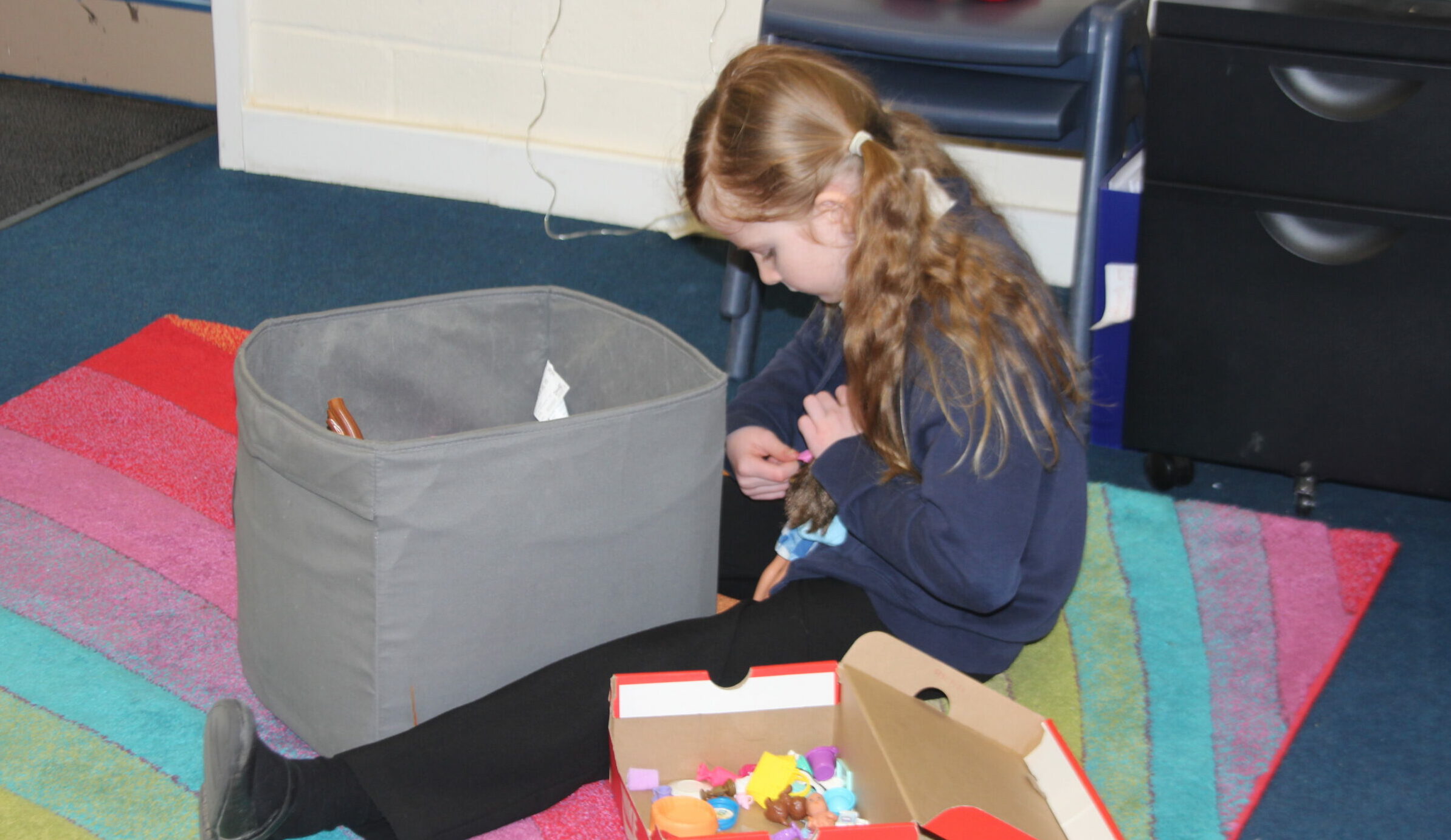
Therapeutic Inteventions
Wolverdene aims to “nurture a love of learning” by providing an holistic approach to education, understanding that a child with SEMH needs will likely be unable to process information without first addressing the building blocks for learning; social and communication needs, emotional awareness, self-esteem and self-perception. We understand that children with SEMH needs use their behaviour as communication and we use a range of therapeutic and academic interventions to support a culture where children are able to flourish and reach their potential.
Wolverdene has a high staff to pupil ratio and each child is allocated a keyworker from their class over the course of the first half term. The role of the keyworker is to build a positive relationship with the child through small group and individual work, to act as an advocate for that child whilst holding a deeper understanding of the child’s inner life, meaning they can offer a comprehensive view of the child’s needs. The benefits of positive relationships with adults mean that children can attend school feeling emotionally safe and begin to communicate their needs without the use of challenging behaviour. Through positive relationships, adults are able to emotionally co-regulate the children which in turn leads to self-regulation.
As well as keyworking Wolverdene uses a number of out of class interventions that can be directly offered to identified children. All referrals are made via CPOMs (our online reporting system) and are assessed by the Referral, Assessment and Strategies Team (RAS).
Interventions currently offered include:
– Interventions Team: Unplanned interventions to support children in crisis
FEIPS / ELSA
Social Skills Group
Girls’ Group
Speed-Up Handwriting
Maths intervention
– Family Support Work
– Nurture Group
– The Lodge
– Occupational Therapy support
– Dance & Movement Psychotherapy
– Play Therapy
– Therapeutic Counselling
As well as a higher staff to pupil ration within the classrooms, Wolverdene also has a dedicated interventions team. The Interventions Team work alongside the class groups in supporting the assessment and re-integration of children who are presenting challenging behaviours which are impacting on their ability to learn, both academically and socially. The Interventions Team, led by the Head of Pupil Support, works closely with the Positive Behaviour Support Manager and class groups in identifying young people who are in need of individualised interventions. These interventions will be based around short, medium and long term objectives and can be provided either on an individual or small group basis. The aim is to work with children using planned interventions rather than reactive strategies. All referrals for planned interventions will go through the RAS Team and appropriate support will then be allocated.
The role of the Interventions Team is to support the agreed aims and objectives in the following ways:
• Offering a pro-active approach by being a visible presence around the school, particularly around transition times, such as before school, movement of class groups, lunch times, break times and end of the school day.
• Offering support to individual class groups in an LSA based role due to:
– part of a planned intervention;
– re-integration of a child back into class after a period of time out of class;
– staff absence.
• Provide a link with the class groups in offering a graded response in managing a child’s challenging behaviour outside of the class. For example:
– A child being offered an opportunity to talk through an upset / concern by coming directly to the Interventions Team. This can be either the child’s request or via the class teams.
– By providing an early intervention during those periods of the day which are high risk from our own observations.
– As part of the process of re-integration after a child has been in crisis.
– Backfilling in class when a LSA is out of class supporting a child for a prolonged period or when the class is unsettled due to the earlier incident.
– Supporting staff with the debrief / repair process following an incident. (The Interventions Team will support class colleagues in a physical intervention, where necessary).
• Provide a link with the class groups in offering a specific curriculum based intervention. This will be referred via the RAS Team, be planned, timetabled and related to PIPs.
• Provide a planned intervention to support the development of a social / behavioural need. This will be referred via the RAS Team, be planned, timetabled and included within PIPs.
• Provide planned group workshops, targeting specific identified areas of need. Referred via the RAS Team.
• Maintain good communication and work closely with class groups, Family Support Team, Therapy Team, Lodge Team and Senior Management Team.
• Supporting class groups in developing PIPs and PBS plans.
